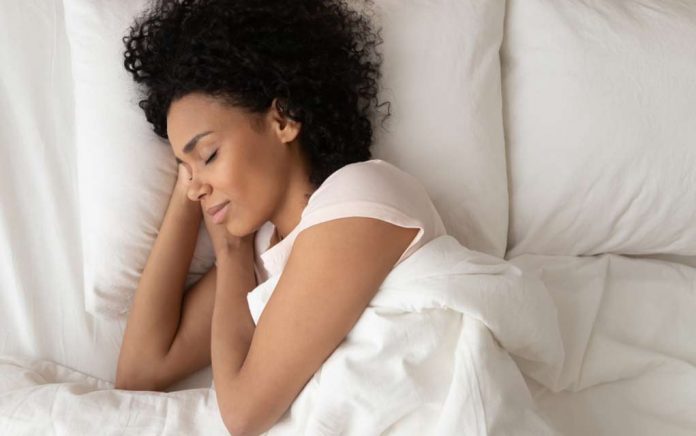
(AscendHealthy.com) – A good night’s rest can make anyone feel like a million bucks the next morning. But when it gets challenging to fall asleep, or you wake up a lot throughout the night, it’s time to find a solution. Asking friends for advice or scouring the web can leave you with a lot of unknowns. But here are five actual sleep myths to dismiss right now!
Remember These Important Myths When It Comes to the Perfect Night’s Sleep.
Myth #1: It Doesn’t Matter When You Sleep
Anytime you can get some shut-eye is helpful. Or so you may have been told. This myth seems to hold true for those working the 3rd shift who have to sleep during the day.
The fact is that it can be difficult to get uninterrupted sleep during the bustle of daylight hours. The resulting lower sleep quality might increase the risk of developing conditions like cancer, diabetes, and depression.
Myth #2: Cardio at Night Disrupts Sleep
Don’t have enough time to get in daily cardio? Consider trying a midnight run. Despite a myth floating around that exercise can be detrimental at night, endorphins that might be released have not been shown to distract from a good night’s sleep.
On the contrary, exercise boosts cardiovascular health, helps reduce anxiety and regulates the body’s internal clock.
Myth #3: Falling Asleep Easily is the Sign of a Good Sleeper
Do you ever get jealous of someone who goes to sleep as soon as they close their eyes? Wouldn’t that be nice? As restful as it might look, it may not be a natural or healthy condition for them. It could be a sign of sleep apnea or an obstructed airway.
Another possibility is sleep deprivation. If someone exhibits symptoms of daytime sleepiness, the inability to stay awake, or seems to pass out as soon as they lay down, they should be evaluated by a medical professional.
Myth #4: Some People Only Need 4 Hours of Sleep a Day
Some people function normally with just 4 to 5 hours of sleep nightly. Everyone has a circadian rhythm that their body needs for falling and staying asleep. But the National Sleep Foundation still recommends at least 7 to 9 hours a day of sleep for adults.
Lack of appropriate sleep on a chronic basis may trigger metabolic and immunologic health consequences. It might also affect mental health and lead to lethargy and poor thinking skills.
Myth #5: A Cozy Bed Helps With Sleep
There is nothing like crawling into a nice warm bed. While this may be welcoming when it’s bitter cold out, your body needs to adjust to a certain temperature. Ideally, the sleeping area should be between 65-70 degrees F. This makes it easy for your body to regulate temperature and stay asleep.
Chronic sleep deprivation can trigger serious cognitive and physiological performance issues and make underlying health problems worse. The good news: several major sleep myths have been debunked. Making a few changes may lead to sleeping through the night and waking up refreshed and ready to take on the world!
~Here’s to Your Healthy Ascension
Copyright 2023, AscendHealthy.com




















